Handling Your First Time Drug Driving Offence in the UK
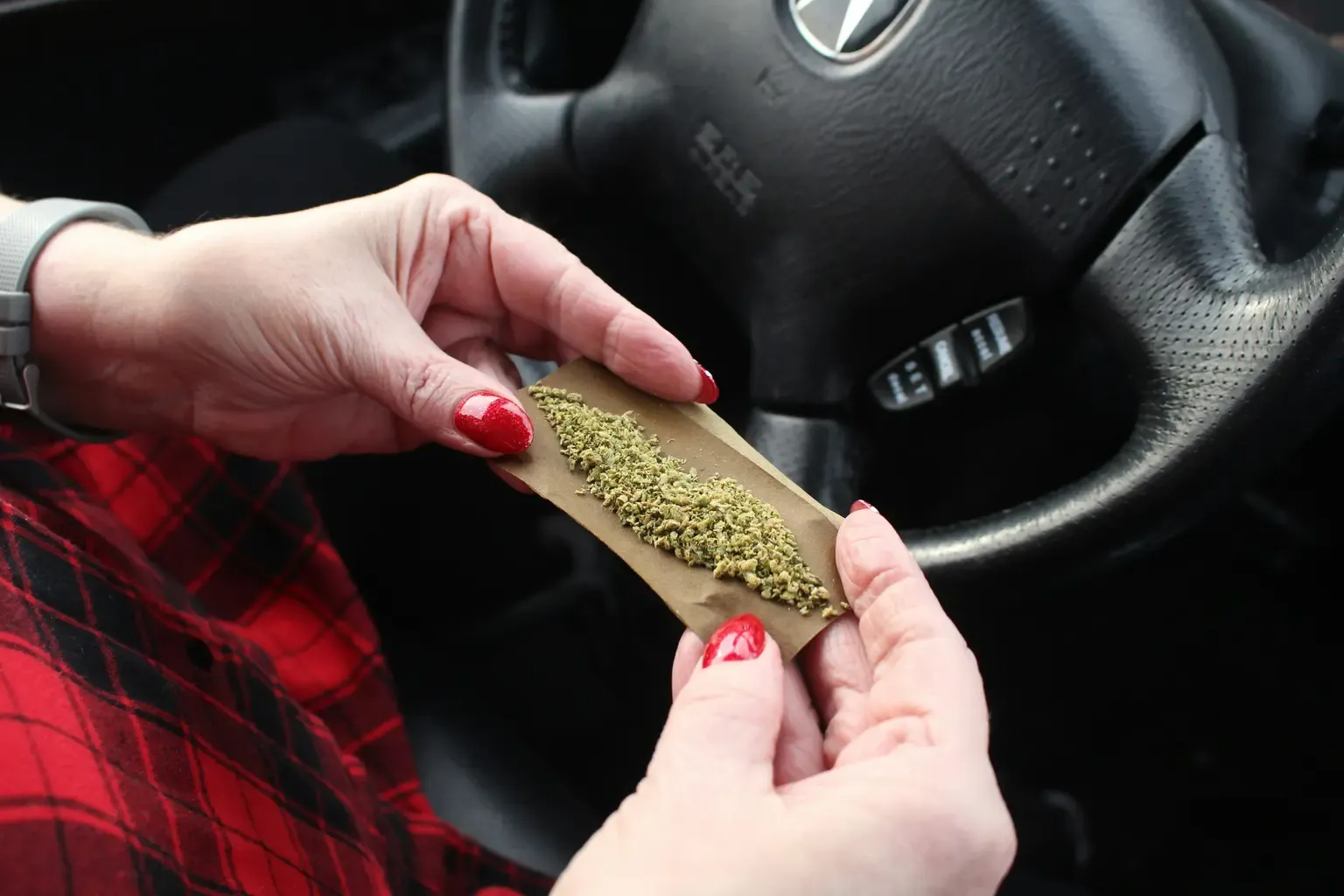
Key Takeaways:
- A first-time drug driving offence in the UK is serious and can lead to penalties including up to six months in prison, heavy fines, and a driving disqualification.
- Drug driving is defined as driving with certain drugs, including prescription drugs, over a specified limit or being unfit to drive due to drugs.
- Arrests typically involve roadside tests followed by blood or urine tests at a police station to confirm drug levels.
- Sentencing can include licence bans, fines, community service, or rehabilitation orders, with the severity depending on aggravating factors like drug levels or causing an accident.
- Mitigating factors, such as no previous criminal history or cooperating with authorities, can lead to reduced penalties or alternative sentencing options.
- Legal representation is crucial to contest charges, reduce penalties, or explore alternative sentencing options.
A first time drug driving offence UK charge is very serious and the fact that you are a first-time offender only has a minimal impact on the sentencing you may face if found guilty. In fact, you could spend up to six months in prison as well as significant financial penalties and a driving disqualification.
WhileMMA Law Ltd’s experienced lawyers can prepare a strong defence to help clients avoid convictions, it’s important to be aware of the drug driving first offence UK legal processes. Here’s all you need to know.
What is Drug Driving?
Before considering the potential repercussions of a first time drug driving offence UK, you must first ask “What is drug driving UK?” to understand what constitutes an offence.
Drug driving laws UK state that “It's an offence to drive with any of 17 controlled drugs above a specified level in your blood”. As well as illegal drugs, the list includes several prescription drugs like amphetamine and lorazepam.
The UK’s drug driving legal definition also stipulates that it is illegal to drive if drugs (including prescription drugs) make you unfit to drive, even if this is within the permitted blood content levels. Examples of being unfit to drive include impaired vision or coordination, aggression, drowsiness, and dizziness.
In other words, you will only avoid a drug driving first offence UK case if you have followed medical advice on how to take prescription drugs and are deemed in a fit state to drive.
What Happens for a First-Time Drug Driving Offence in the UK?
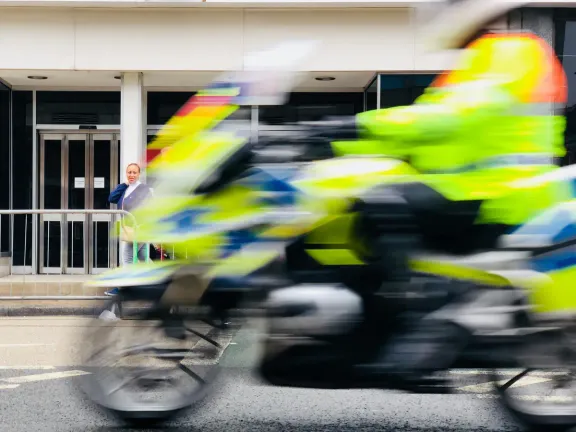
Research shows that drug driving arrest UK figuresnow outweigh drink driving figures in some parts of the country. Therefore, knowing what happens for drug driving UK arrests and cases is relevant for an increasing number of motorists. Here’s all you need to know:
Arrest and Initial Police Procedures
A police officer may request a roadside test if they have reason to believe that you are driving under the influence of drugs. This is most likely due to erratic driving behaviour. They may also request further testing at the police station. Alternatively, drug tests may be completed as a part of the procedure following a road accident.
Following an arrest, the police will gather evidence to build a case against you, which will be completed by the magistrate’s court.
What Happens in Court For a First-Time Drug Driving Offence UK
First offence drug driving UK court cases are handled on an individual basis, but the common stages that you’ll experience are;
- Before the court date, your solicitor will access the ‘options’, which is the initial evidence against you. If incorrect details are present, it may be possible to get the case dropped.
- At the court hearing, a plea (guilty or not guilty) will be presented with your evidence and statements. This can also extend to mitigating circumstances or contesting the evidence.
- The prosecution will supply their evidence, including the results of blood/urine tests and witness statements. There are opportunities for both parties to back up their side further.
- The judge will then make a decision based on the evidence, working within the legal frameworks, and reach a verdict.
How Long Does the Process Typically Take?
If you plead not guilty for a drug driving case, you can expect a wait of 4-6 months for the case to reach trial. Meanwhile, it can take 6-8 weeks for drug test results to arrive. So, this gives you lots of time to focus on preparing your defence with a solicitor.
In court, a guilty plea results in a speedy case hearing (under one hour) but a not guilty plea could see the hearing last several hours or potentially days. This depends on the volume and type of evidence presented.
Drug Driving Second Offence Punishment
A second drug driving arrest UK case against your name will bring severe punishments, especially if the first offence drug driving UK charge was in the last 10 years. If found guilty, driving disqualifications are extended to a minimum of 36 months while community penalties, curfews, and fines are more likely. Most significantly, the risk of facing jail for drug driving significantly increases with each offence.
Drug Driving Sentencing Guidelines in the UK
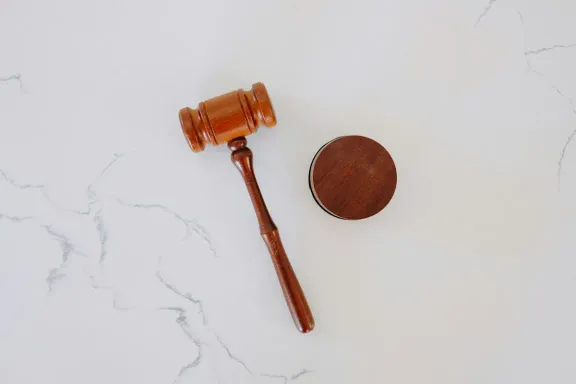
Drug driving penalties first offence cases can vary, but DG10 drug driving code guidelines have guidelines and limits (both minimum and maximum) for all types of repercussions. This includes fines, custodial sentences, and other penalties.
The current drug driving sentencing guidelines UK stipulate that there is a difference between driving and attempting to drive under the influence of drugs but that even the latter can carry the same repercussions. Key drug driving penalties first offence include;
- Driving licence ban - minimum of 12 months or 36 months for aggravated factors.
- Custodial sentence - up to 6 months, but only for severe cases.
- Financial fine - usually 1.5x your weekly net income.
- Community service - for minor offences, often in place of fines or jail time.
- Rehabilitation - completing drug driving courses to prevent repeat offences.
Will You Go to Jail for a First-Time Drug Driving Offence?
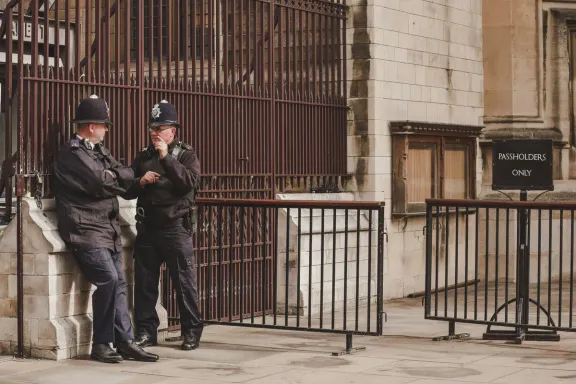
Anyone who has been arrested for drug driving asks“Will I go to jail for drug driving UK?” almost immediately. The good news for first time drug driving offence UK defendants is that jail time is unlikely.
However, custodial sentences are possible for drug driving offences just as they are withdrunk driving cases. Here are the key details regarding first offence drug driving jail UK protocols:
Circumstances that Lead to Imprisonment
Jail time for drug driving UK convictions is fairly uncommon but there are aggravating circumstances that will lead to more severe punishments, which could include a six-month prison sentence. They are;
- The drug levels are particularly excessive, thus highlighting greater negligence.
- You have faced other driving offences, particularly if they are recent charges.
- Other specified drug(s),including alcohol, are also found in the body.
- You were driving an HGV, LGV, or PSV at the time of arrest.
- The incident caused an accident, endangering road users or damaging property.
Naturally, drug driving first offence UK punishments become worse if the situation results in more severe charges like death by dangerous driving. For example, adrug driver was jailed earlier in 2024 after a fatal collision on the A303.
Non-Custodial Sentencing Options for Less Severe Cases
Nevertheless, jail time for drug driving in the UK is unlikely in general cases with no aggravating factors involved. When this is the situation, the most likely punishments are;
- A penalty mark on your licence for 11 years.
- A fine of up to £5,000 (the maximum magistrate's court fine).
- Driving restrictions.
- A criminal record.
- Community service and court orders on completing rehabilitation.
Will You Lose Your Licence for a First-Time Drug Driving Offence?
As well as knowing about potential prison sentences, most drivers who face this type of chard will wonder about the potential drug driving licence ban UK protocols.
First-time drug driving licence loss UK regulations state that the minimum disqualification period drug driving offenders will face is 12 months while the conviction will remain on your record for 11 years. It should also be noted that;
- This may be raised to a period of up to 36 months if you have related offences on your criminal record.
- Drivers may also have their ban increased if they have passengers in the car or have endangered others by driving in residential areas or near schools.
- It may be possible in some circumstances to reduce the ban. The most common are if you were driving in a medical emergency or had your drink spiked.
How Are Drivers Tested for Drug Driving in the UK?
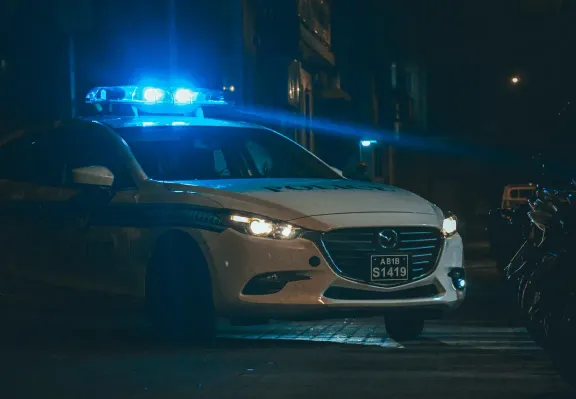
You can only face a drug driving charge if you are actually tested for intoxication while driving. The drug testing police procedure UK covers two types of main types of tests:
Roadside Drug Tests
A roadside drug test is conducted when a police officer pulls you over with suspicion that your driving is impaired by substances, they may complete an oral swab (which primarily picks up cocaine and cannabis levels) or a breathalyser for alcohol.
The law enforcer may also conduct a Field Impairment Test to test your coordination and reactions.
Blood and Urine Tests at the Police Station
If the officer believes that you are over the limit for other substances, including listed prescription drugs, they may request for you to accompany them to the station for further testing.
Refusing or failing to provide samples in drug driving cases can carry huge consequences, resulting in the same punishments as a conviction. In most situations, providing a sample as part of the drug testing police procedure UK is advised.
Aggravating and Mitigating Factors in Drug Driving Sentencing
While UK laws do use guidelines on what constitutes drug driving, as well as the potential repercussions, it’s important to remember that all instances are judged on a case-by-case basis. Therefore, it’s important to recognise both the aggravating and mitigating sentencing factors drug driving laws consider as this information can have a huge influence on court decisions.
Given that conviction rates can beas high as 98%, understanding the issues that impact court rulings can help you get the best outcomes. The following issues could either help or hinder your case:
Aggravating Factors
- Excessive drug levels
- Other substances in system
- Driving near schools
- Prior driving offences
- Refusing blood/urine tests
Mitigating Factors
- Cooperating with authorities
- No previous criminal history
- Small quantity of drugs
- Proof of travelling a small distance
- Driving in an emergency
- Taking prescription drugs as advised
- Minimal impairment caused
- No passengers or damage to others
What Are the Alternative Punishments for First-Time Drug Driving Offenders?

As with other road-based offences likespeeding, first time drug driving offence uk defendants may be able to negotiate alternative punishments. This is most common when the individual has no other driving offences on their record and was found guilty of drug driving as a result of underestimating the impact of their prescription drugs.
The most common alternative punishments drug driving UK convictions offer are as follows;
- Drug rehabilitation orders. While they won’t stop you facing punishments, first-time offenders who complete drug driving rehabilitation programmes have shown a commitment to change, which helps avoid jail and reduced fines.
- Completion of drug driving courses to reduce disqualification periods. By passing one of the approved drug driving courses UK, defendants could see a 12 or 36-month driving ban reduced by several months.
- Community service or fines instead of jail time. First time drug driving offence UK court hearings may allow defendants to pay a fine and/or givencommunity sentences instead of a six-month prison sentence. However, driving disqualifications are often upheld in this instance.
Can You Get Drug Driving Charges Dropped?
Given the severity of a first time drug driving offence UK charge, it makes sense to fight the charge where possible. There are several legal defences for drug driving UK arrests to consider, which may result in charges being dropped before or during court proceedings.
A dedicated criminal defence lawyer can impact the outcome of the case, often leading to dropped drug driving charges UK. Common legal defences for drug driving UK cases include;
- Insufficient evidence. Following an arrest for drug driving, police officers must gather evidence including blood readings, witness statements, andMGDD forms. If the evidence gathered is lacking in quality or quantity, the charges may need to be dropped.
- Improper testing procedures. If the law enforcers used incorrect testing procedures, either with roadside testing or police station testing, the evidence gained here becomes compromised. It can then be argued that this is invalid, thus leading to a dropped case.
A solicitor for drug driving charges UK will identify any holes in the evidence or incorrect procedures. Moreover, they can help with other defences, such as a prescription drug not impairing your driving ability and contesting the suggestion that you were not fit to drive.
The likelihood of having charges dropped before the court hearing is higher than many first time drug driving UK offenders imagine. For the best hopes, you should highlight any police errors ASAP.
How To Get Off a Drug Driving Charge

Facing a first time drug driving offence in the UK can feel scary, but it’s imperative that you act fast to maximise your hopes of getting the charges dropped. Hiring an experienced solicitor for first-time drug driving offence cases should be at the top of your agenda.
MMA Law’s dedicated team provides comprehensive drug driving legal representation UK services to help mitigate penalties, reduce bans, or even get the charges dropped. We will build a solid defence for your drug driving case, which could involve contesting insufficient evidence or proving mitigating circumstances. Moreover, our representation saves you from becoming tangled in a prosecutor’s web of complex legal matters while simultaneously allowing you to enter the legal process with confidence.
If you need a specialist UK drug driving first offence solicitor to help get your charges dropped and reduce the risk of driving disqualifications and potential jail time,contact us to discuss your case today.
